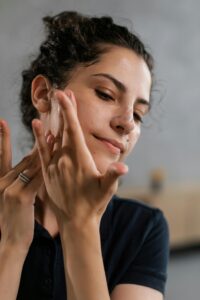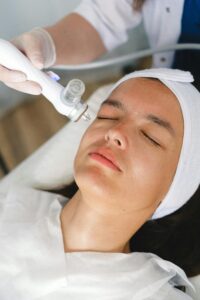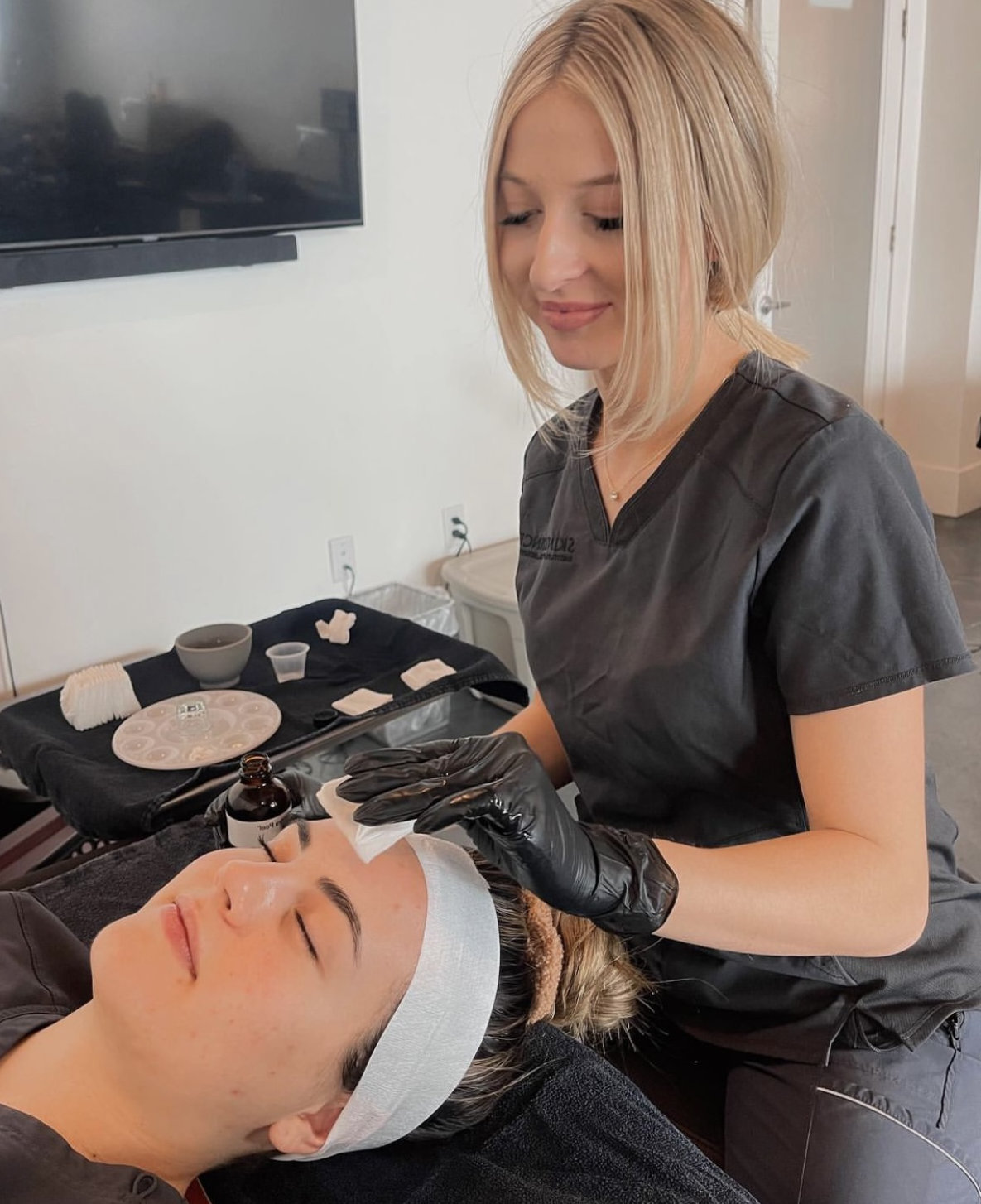[et_pb_section fb_built=”1″ _builder_version=”4.16″ global_colors_info=”{}”][et_pb_row _builder_version=”4.16″ background_size=”initial” background_position=”top_left” background_repeat=”repeat” global_colors_info=”{}”][et_pb_column type=”4_4″ _builder_version=”4.16″ custom_padding=”|||” global_colors_info=”{}” custom_padding__hover=”|||”][et_pb_text _builder_version=”4.27.4″ header_font_size=”45px” background_size=”initial” background_position=”top_left” background_repeat=”repeat” global_colors_info=”{}”]
Demands in the beauty and skincare industry are continuously evolving, and traditional esthetic services are transforming to meet the rising demand for a more wellness-focused, holistic approach. Today’s clients are looking for more than just surface-level skincare: They are prioritizing treatments that nurture their physical, emotional, and mental well-being. The holistic approach combines these aspects to create a balanced, complete approach to beauty.
Holistic beauty refers to caring for all parts of the body, not just skincare. It acknowledges the cycle of how mental and physical well-being influences skincare and vice versa. By supporting this harmonious practice, holistic estheticians provide their clients with a more profound, lasting result. Clients who pay attention to their inner wellness in tandem with outer beauty are discovering positive effects that reflect on the outside as well as the inside.
How Holistic Beauty Is Changing the Industry
The demand for holistic beauty is rapidly transforming esthetic services. Traditional esthetics focuses mostly on addressing specific skin concerns like acne, wrinkles, or sun damage, whereas holistic beauty treats the whole person. Many estheticians still practice conventional methods, but those adding in holistic practices find that they can offer a deeper, more meaningful experience for clients that creates a unique bond and keeps their clients returning.
This shift allows estheticians in both spas and skincare clinics to position themselves as wellness guides and offer a customized experience that addresses each client’s body and mind. This creates value that goes beyond typical skin treatments and increases client loyalty and satisfaction. Holistic estheticians understand that beauty treatments are not just about appearance but also about how clients feel, both during and after their appointments.
Elements of Holistic Beauty
Holistic beauty encompasses multiple wellness aspects to support skin health and overall well-being. Here are some key elements in holistic esthetic services:
Diet and Skincare
Many holistic estheticians recognize that diet and nutrition play a major role in skin health. Certain nutrients support clearer skin, reduce inflammation, and improve skin resilience. For clients, understanding the diet and skin connection can be monumental, especially for managing skin concerns like acne.
Hormones and Skin Health
Hormonal imbalances are a common cause of skin issues like acne, dry skin, and increased oil production. Holistic estheticians often work with clients to understand and regulate the hormonal changes affecting their skin with natural influences.
Stress Management and Cortisol Levels
Stress has a significant impact on skin health, and it often leads to increased cortisol levels, which can make skin conditions like acne, eczema, and psoriasis much worse. During services, estheticians help clients manage stress and lower their cortisol levels with things like meditation, massage, and breathwork, which can lead to fewer breakouts and improved skin health.
Core Components in Holistic Esthetic Services
Holistic estheticians integrate various wellness practices into their services that enhance skin health and well-being. Some of the most popular components include the following:
- Breathwork and guided mindfulness exercises that help clients relax, reduce stress, and become more attuned to their own needs.
- Massage therapies like facial massage, lymphatic drainage, and even body massage are incorporated into skincare routines to improve circulation and stimulate lymphatic flow.
- Aromatherapy using essential oils creates a calming environment, enhances relaxation, and even provides natural anti-inflammatory effects.
- Products incorporate natural ingredients—such as clays, botanical extracts, and essential oils—instead of harsh chemicals.
Holistic Estheticians as Wellness Guides
Estheticians are taking on the role of wellness guides as well, offering guidance on skincare, lifestyle, and wellness practices. They are investing in additional training, certifications, and licenses in areas like anatomy, nutrition, and wellness practices. Becoming a successful holistic esthetician requires a foundation training in traditional skincare, and many will later specialize in holistic practices through advanced courses and licensing.
Embracing Holistic Beauty
Holistic beauty is a refreshing alternative to traditional skincare, emphasizing the mind–body connection and overall wellness. Integrating wellness practices into esthetic services can create a more meaningful experience for clients that addresses surface-level skin concerns and also supports long-term well-being.
Skin Science Institute exemplifies this approach by offering students comprehensive training in wellness-based esthetic services. Their programs cover essential practices such as lymphatic draining, facial massage, and aromatherapy. In intermediate and advanced programs, students dive deeper into areas like nutrition, hormones, and advanced skincare techniques.
For clients, embracing holistic beauty means making a commitment to inner wellness just as much as skincare and outer beauty. For estheticians, it’s an opportunity to grow their practice in a meaningful way, helping clients cultivate lasting beauty and wellness from the inside out.
[/et_pb_text][/et_pb_column][/et_pb_row][/et_pb_section]




